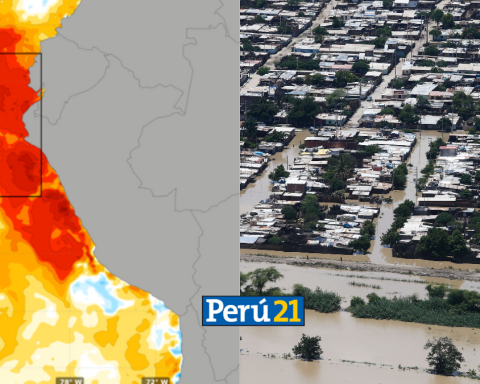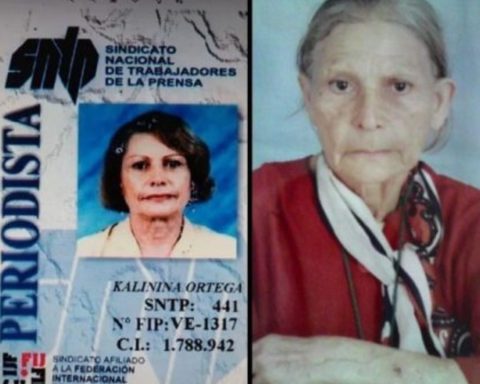For approximately a year to date, the isapres – through their union association – have been in a permanent campaign to account for the serious economic crisis they face due to the thousands of cases that take place in courts every year, the increase in of the costs in terms of medical benefits that must be paid to private clinics and the restrictions to raise the price of health plans. The president of the Association of Isapres, Gonzalo Simón, has even maintained that these Social Security Institutions have managed to stand up to date exclusively due to the capital increases that their controllers have made, but that, when that flow stops arriving , they will simply go bankrupt, leaving 3.3 million affiliates adrift.
Recently, the Minister of Health, Ximena Aguilera, agreed with the diagnosis and stated “that the isapres have been in business for 40 years and their business model has been exhausted, since they transferred all the cost to the patient”, which is why work is being done on a reform so that the isapres become “second floor insurance”, he advanced.
This crisis scenario, however, could become even more acute, once the decreed proceedings by the High Complexity Prosecutor of the Central North Prosecutor’s Office, Jaime Retamal Herrera, who has been carrying out a criminal investigation since the end of 2021, RUC 2100048413-4, originating from a criminal complaint filed against the isapres Banmédica, Vida Tres, Consalud, Colmena, Nueva Masvida and Cruz Blancafor the crimes of misappropriation, unfair administration, computer crime and money laundering from October 2011 to last year.
Substantively, the isapres are accused of colluding so as not to lower the health plans of those people who changed their age group, from one of higher to one of lower risk, passing off the accumulated contribution surpluses as operating income, reaching earn, in a period of 10 years, a sum close to $810 billion.
In the legal action, presented by the lawyer Matías Coll del Río, a document is attached –obtained via protection from the Transparency Council– who realizes that this was possible thanks to the trade ordinary S$548, which was sent on March 18, 2011 by the Superintendent of Health at the time, Luis Romero Strooy, to the Association of Isapres. In said document –according to the complaint–, Romero Strooy provided the isapres with an interpretative mechanism through which the insurers could refuse to lower the health plans by age range and, thus, contravene the ruling of the Constitutional Court (Rol 1710 -2010-INC), which declared unconstitutional increases in plans based on the age of the affiliates.
This document was sent during the first administration of former President Piñera and under Jaime Mañalich’s term as Minister of Health. Mañalich himself, when he appointed Romero Strooy, warned that the superintendent would not intervene in any of the matters related to the regulation of the isapres, due to a clear conflict of interest. Romero Strooy, when he sent the document that –according to the lawsuit– favored the isapres, came from working as a manager for more than 15 years in the Colmena isapre (1995-2010).
The origin of the case
On August 6, 2010, the Constitutional Court (TC) dealt a blow to the chair when it declared several articles of Law 18,933 unconstitutional. Specifically, the TC established that raising prices according to the age of the members was unconstitutional, as it affected the provisions of the Political Constitution, which guarantees the right to health.
With this resolution, as established in various documents of the Superintendence of Isapres and which appear in the investigative file, health insurers had no choice but to apply, in those cases in which prices were raised, the article 199 DFL No.1 of 2005, which stipulated that the cases in which surpluses are registered as a result of price increases, should be returned to the affiliates.
On October 18, 2018, in Circular 317, the Superintendence of Isapres communicated with the insurers that had to apply the reduction of the age factor to the beneficiaries, in accordance with the law passed 13 years ago.
As part of the arguments of the replenishment resources put forward by the companies for not applying the reduction and that were collected in Exempt Resolution No. 490, of November 22, 2019, which instructs the private companies to return the surpluses, the isapres recognized that The administrative act did not consider the “economic impact” that such a measure implied and the serious economic damage that it generated, before which they affirmed that the decree that forced them to lower prices had been left without “legal support” with the resolution of the Constitutional Court that it eliminated the articles that allowed the increases.
By these words, the plaintiff attorney Matías Coll maintains that the different insurers implicitly recognized that for almost a decade they have improperly appropriated the contributions charged in excess.
“The magnitude of the economic impact and the consequent damage to the affiliates must necessarily be established through a complete forensic accounting audit, in charge of judicial experts who are experts in corporate fraud,” the lawyer points out.
The compromising document
In light of this background, the key evidence, and for which for 10 years the insurers did not process the return of the surpluses, was precisely the private letter that Romero Strooy sent to the Association of Isapres. The document, which was finally obtained by the complainants through an amparo before the Council for Transparency, is dated March 18, 2011.
According to the text of the complaint, Wel, the manager of Colmena, taking advantage of his appointment as Superintendent of Health, by the president, Mr. Sebastián Piñera, and the minister of the portfolio, Jaime Mañalich, instructed his colleagues from the same business association in which has exercised his entire professional life, that they cease to comply with what is established by law, health contracts and current Circulars, alluding to two decisions of the Supreme Court and the ruling of the TC”.
According to said official letter, the isapres would be “prevented” from modifying the age factor of the beneficiaries of the health plans, since there would be a “legal vacuum” that had to be filled by the legislator. With this instruction, the superintendency of the time, in fact, “froze” the application of the table of factors.
However, in Official Letter 265, dated January 26 of this year, that is to say, 11 years after the Romero Strooy document that allowed the isapres not to lower health plans, the current Superintendent of Health, Patricio Fernández, in response to an official letter from the Chamber of Deputies (Official No. 163/2021), argued that the final paragraph of article 199 of DFL No. 1 of 2005 of the Ministry of Health, which obliges the isapres to modify the risk factors due to change of age group, has not been repealed as a result of Official Letter No. 548 of Romero Strooy. Therefore, -says lawyer Coll del Río-, “the legal norm that establishes the obligation that the isapres had to apply the reduction of the risk factor of the beneficiaries with the consequent reduction in the price of their health plans has always been fully in force. “.
In the same official letter, Fernández points out that the particular document of the former superintendent of Piñera 1 was never published, nor made known to the members, since it would have been an “act of communication” “directed exclusively to its recipients”, this es, the general managers of private insurers and the president and executive director of the Association of Isapres.
“But they did not even warn the affiliates about the patrimonial effects of this measure, which they should have done legally through the letters of adequacy that they send each year to the affiliates to inform them about the increases in the base price. These letters say nothing. of annual adjustments (from 2011 to the present) on this modification of the terms and conditions of the contract. The reason is that the representatives of the isapres have always been fully aware that what they were doing was illegal and absolutely contrary to law” , maintains the lawyer Coll del Río.
In this line, it would be a question of misappropriation and unfair administration, since the isapres, as administrators of the members’ health contributions, had the obligation to record the difference between the total agreed price and what was paid monthly as “excesses”. contribution”, that is, as a liability subject to reimbursement in favor of the affiliates affected. On the contrary, these “excess contributions”, owned by the affiliates, were accounted for as “operating income”, misappropriated (the isapres) of these contributions, which is also constitutive of the crime of money laundering, affirms Matías Coll .
Likewise, within the data provided in the investigative file, the plaintiff attorney points out that an approximate universe of 115,000 affiliates each year should see their age risk factor reduced.
Specifically, “we are talking mainly about all the boys and girls who turned 2, 5 or 6 years old during the period between 2011 and 2020, but also about all the women who in that same period of time turned 38 or 40 years, whose risk factors should be reduced when leaving the age considered fertile, which should translate into a reduction in the contribution they paid for their health plans, “said Coll del Río.
According to this same logic, the complaint states that, in order to keep prices frozen, simultaneously and under an uninformed agreement – which could presumably involve face-to-face and/or private meetings between the former superintendent and the owners of the isapres– , “these altered the algorithm or mathematical formula that is used to calculate the total contribution to pay referred to in the factor tables, appropriating contributions higher than those agreed for 11 years.”
Lawyer Matías Coll, in conversation with The counterexplained that “the algorithm to calculate the price is regulated by mandatory instructions issued by circulars by the Superintendency of Health.”
It is the agency “that establishes that the isapres must multiply the base price of the plan by the sum of the risk factors of the family group, which vary as the years go by”, which must happen automatically, “adapting their systems computers to the norm.
Total silence
For the preparation of this note, The counter He contacted the former Superintendent of Health, Luis Romero Strooy, who recused himself from commenting on the background. The former Minister of Health, Jaime Mañalich, responded in a similar way. The Association of Isapres also did not want to take responsibility for the accusations. In the particular case of the insurance company Cruz Blanca, which became part of the criminal investigation by appointing lawyers, inquiries were made with the same result.
Within the next few weeks, the expert report that prosecutor Retamal commissioned from the PDI is expected to arrive at the Prosecutor’s Office, where the statements of Romero Strooy, Jaime Mañalich and the managers of the isapres should be recorded. Banmédica, Vida Tres, Consalud, Colmena, Nueva Masvida and Cruz Blanca.
















